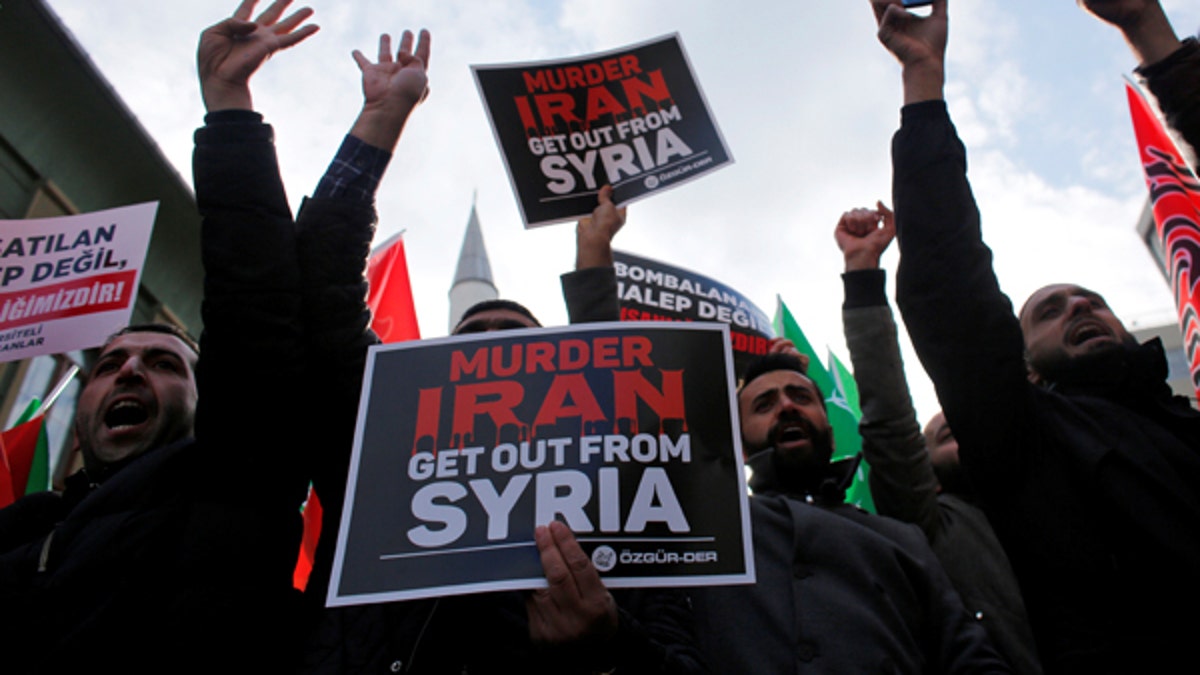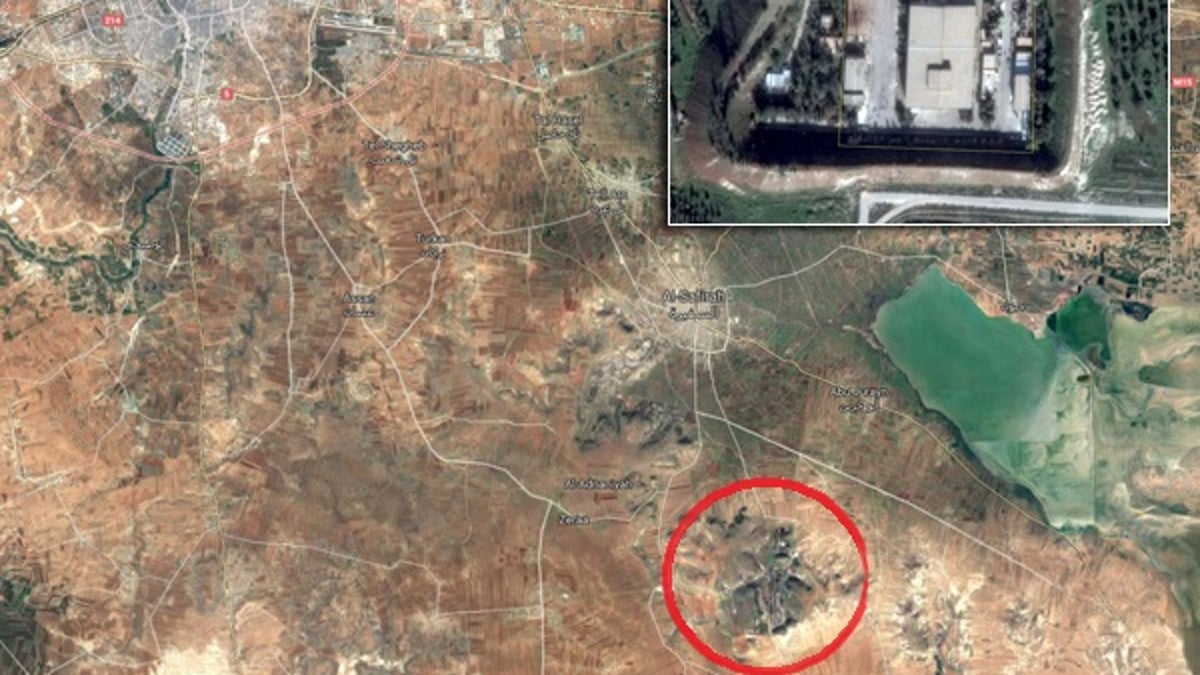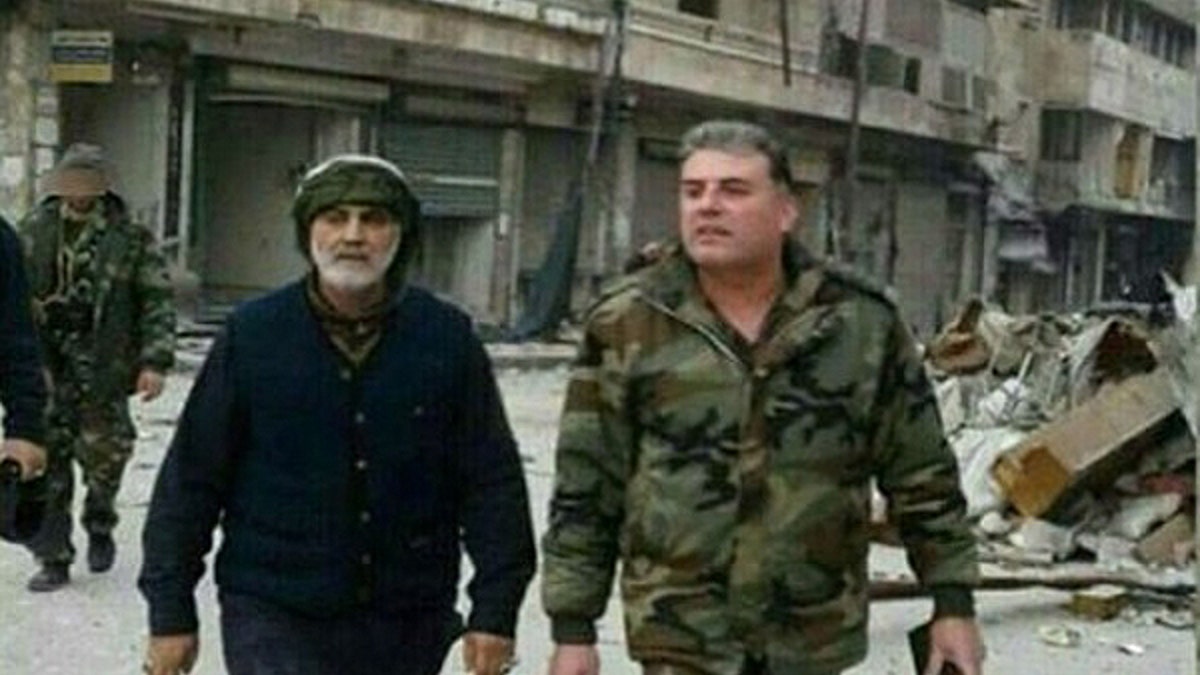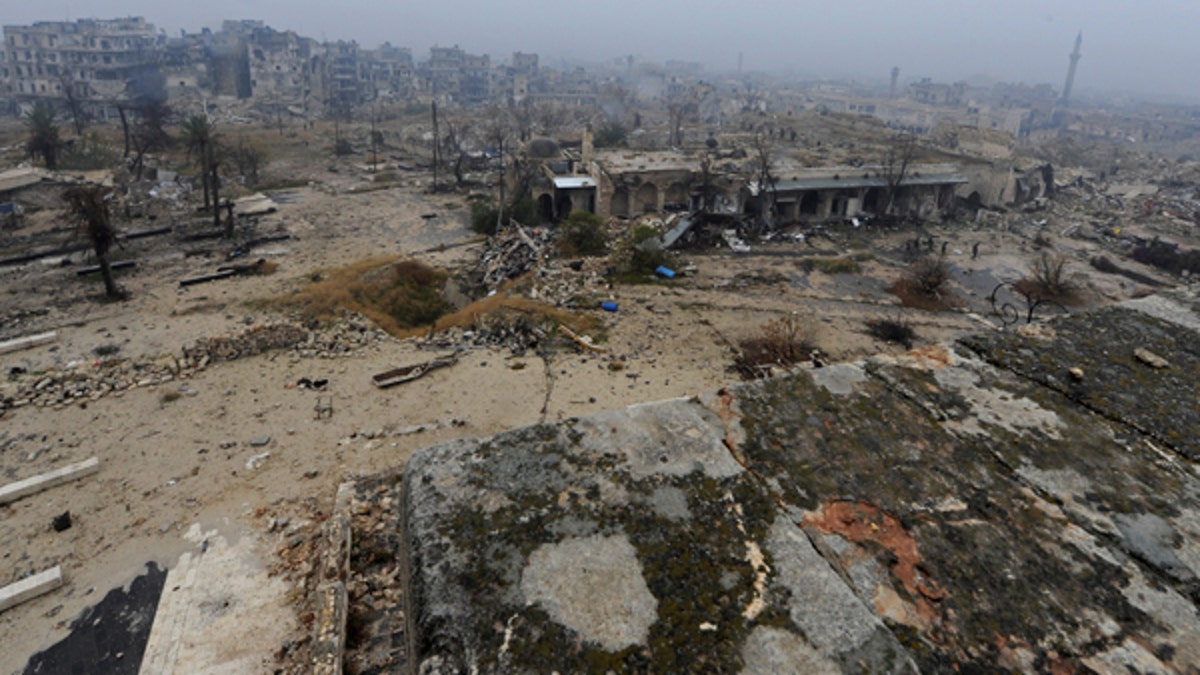
Demonstrators shout slogans during a protest against Iran's role in Aleppo, near the Iranian Consulate in Istanbul, Turkey, December 16, 2016. (REUTERS/Murad Sezer)
Outrage over the carnage in Aleppo has so far been directed at Moscow and Damascus, but activists on the ground say Tehran has a top general on the scene and has established secret camps where Iraqi mercenaries are trained to root out rebels in the Syrian city.
According to information provided to FoxNews.com, the forces currently controlling the city of Aleppo are under the command of Iran’s Islamic Revolutionary Guards Corps (IRGC). The military outfit under its command includes foreign mercenaries such as Lebanese Hezbollah, Iraqi militias, and also the Shiite fighters of the Liwa Fatemiyoun from Afghanistan and the Liwa Zainebiyoun from Pakistan.
On Tuesday, foreign and defense ministers of Russia, Iran and Turkey discussed the future of Syria and the city of Aleppo at talks in Moscow, Turkish and Russian officials said. A Turkish official said the meeting was held to "understand the views of all three sides, laying out where we all stand and discuss where we go from here."
The meeting was further evidence of Iran's emerging role in Syria, both during the ongoing civil war and the expected aftermath.
According to reports received by the opposition to the Iranian regime, the number of IRGC forces and its hired hands in Aleppo and the surrounding area has reached 25,000, while the number of military personnel from Assad’s army is very limited.

The National Council of Resistance of Iran claims that Iranian military forces have set up a headquarters about 20 miles southeast of Aleppo. (FoxNews.com)
“This report leaves no doubt that the Iranian regime is the primary obstacle to any solution in Syria,” Shahin Gobadi, spokesman for the National Council of Resistance of Iran (NCRI) told FoxNews.com. “The current situation in Aleppo and the role of the Iranian regime in the atrocities committed on the ground require the immediate expulsion of the IRGC and its mercenaries from Syria. By meddling in other countries the mullahs try to cover up their vulnerability at home. The survival of the [Iranian] regime has been intertwined with maintaining the Assad dictatorship in power in Syria.”
The reports, which were obtained by the NCRI and its sister organization People's Mujahedin of Iran (MEK), state that the commander of the Quds Force – as IGRC units operating outside Iran are known – in Aleppo is Brigadier General Javad Ghafari, who is described as the right-hand man of the Revolutionary Guard’s commander-in-chief, Qassem Soleimani, who has been referred to as the architect of Iran’s role in Russian operations in Syria.

A photo recently surfaced on social media that shows the head of Quds Forces, Qasem Soleimani surveying the streets Aleppo with his Russian counterpart.
Ghafari was a commander in the Iran-Iraq war and has been in charge of the military forces around Aleppo and the northern front in Syria for three years. He was recently promoted to field commander of all IRGC forces in Syria.
A few months ago, he and Soleimani met with Syrian President Bashar Assad, who praised him during the pow-wow.
Recent intel reports suggest that the Quds Force has deployed mercenaries form a coalition of ten Iraqi groups known collectively as Hashd al-Sha’abi, which is comprised of mostly Shiite groups like Badr and al-Nojba, which has a number of permanent bases in Syria including one close to Damascus International Airport.

A general view shows damage in the Old City of Aleppo, Syria December 13, 2016. (REUTERS/Omar Sanadiki)
The Syrian pro-Assad Baath Brigades and al-Morteza forces are in Aleppo as well.
When contacted by FoxNews.com, officials for the U.S. State Department declined to comment on Iran’s role in the conflict in Aleppo, instead referring to comments made by spokesperson John Kirby at Tuesday’s daily press briefing.
When asked about Iraqi Foreign Minister Ibrahim al-Ja'fari’s denial that Shiite militias from that country were present in Aleppo with permission of their government and if there is concern that these troops could be receiving support from Iran, Kirby said, “I can’t confirm the veracity of the foreign minister’s comments in terms of the presence of Iraqi militia that – and to whom they pledge loyalty or fealty.”
Kirby added, “That said, we know that there are Iranian-backed fighters in Syria. We’ve talked about that. And we’ve talked about the unhelpful role that they have been playing in supporting the Assad regime through advice, through some combat operations, certainly through arms and assistance.
“And we have said before we want the regime and its backers, which includes Iran, to stop that kind of activity and to try to get us to a point where we can achieve a meaningful ceasefire.”
The NCRI has also alleged that the Revolutionary Guard has established its main headquarters around 20 miles southeast of Aleppo in a garrison called Behuth, or Fort Behuth, which used to be one of the most important centers of missile and chemical weapon production for the Assad regime.
It is now under the supervision of Ghafari, but it also contains a center operated by Lebanese Hezbollah commanders, as well as a number of Syrian army officers who are also present, according to the intel reports.
“The fact is that Aleppo has been occupied by the IRGC and its mercenaries,” Gobadi said to FoxNews.com. “Mass executions, preventing the transfer of civilians including women and children, attacking the civilians – has all been done by the forces of the mullahs’ regime.
“[They] are the main source of crisis in Syria and the region,” he went on. “By abusing the inaction of the international community and being convinced of not being held accountable for its crimes, [Iran] has continuously become more emboldened.”



















